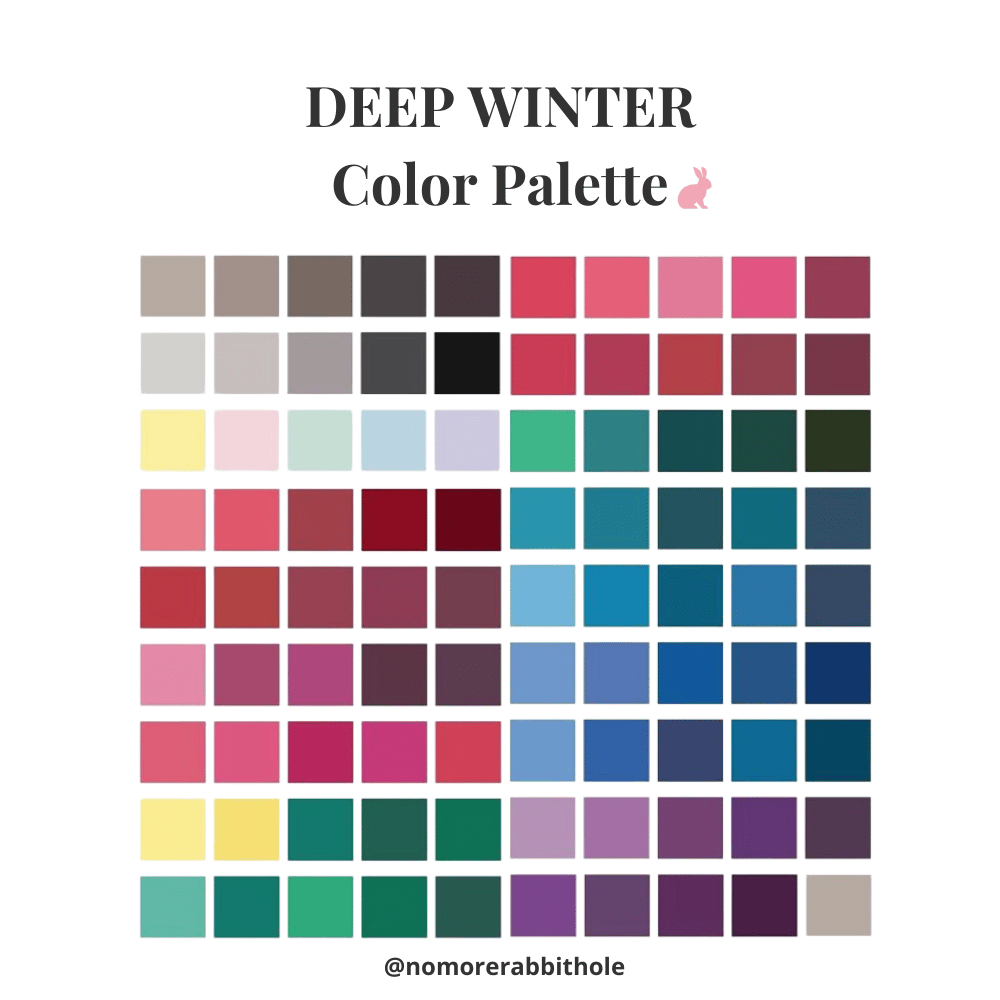Deep Winter Color Type: Complete Guide to Colors, Clothing, and Make-up
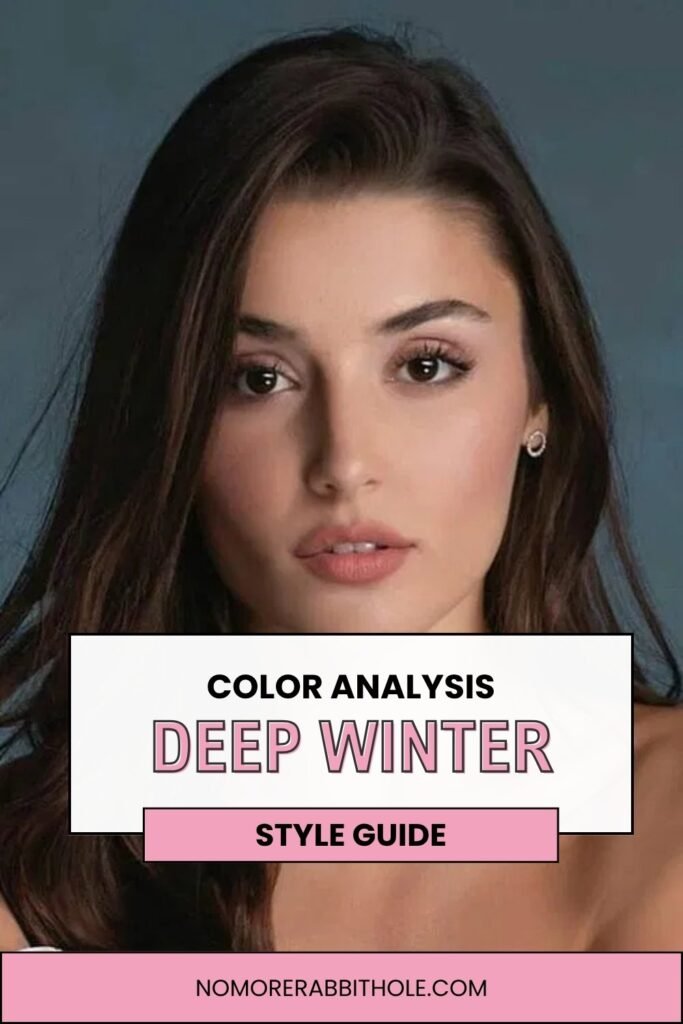
Introduction
Deep Winter is a deep and cool seasonal color type in the color analysis system, characterized by bold, dramatic, and intense qualities. This color type combines cool winter clarity with deep, rich, and clear tones.
In this comprehensive guide, you’ll learn how to choose the best color palette, clothing styles suited for Deep Winter individuals, and makeup tips designed to reflect your powerful elegance.
How to understand Deep Winter Color Type?
If you’re a brunette with brown eyes, you’ve probably considered being a deep winter.
From my experience, darker summer types often thought they were deep winter (just because there was very little information available about the typology before). it was enough to have dark hair and eyes and you are “definitely winter” when later you specify yourself as deep winter, because bright seems too bright and cool seems too cool. That’s what I experienced, even if I’m a soft summer , and also a lot of my friends. What I notice the most difficult thing is that I can’t tell if the colour has a warm or a cold undertone. I could guess whether it’s deep, but not the temperature, so I basically walked around as a soft summer in deep autumn clothes for quite a long time.
It is said that, for example, central and eastern european women are 50% summer types, 25% winter and the rest spring and autumn. Ireland, on the other hand, is predominantly spring and autumn. If we go down to spain, italy etc we find more deep types. winter and autumn. I was trying to say that you can imagine deep winter as a typical Italian or Spanish woman who can wear navy blue and a dark red sweater and look chic. On the other hand, for a summer type it would look very inharmonious.
Are you Deep Winter?
Dark colours generally look elegant and stylish. Deep Winters can also sometimes carry a more vibrant element, which is why a walk through Milan or Madrid can look so fashionable. They can wear colors. Light blondes, for example, can’t. They like the aforementioned navy colors a lot, Navy blue, red and white. It’s harmonious without being overpowering. An all-black outfit looks great on them, compared to all the other types.
If the colour is too vibrant and blushing, they’ll lose their natural elegance. They need very rich and cool and darker colours. They can handle contrast but also monochromatic outfits.
compared to other types, they can handle all-dark outfits. The black colour suits this type best of all.
Deep winter generally tans well, the hair does not sun-dry. Their dominant characteristic is darkness, then coldness. They prefer dark hair, optimally with some chocolate tone. But they should avoid bleaching and warm tones. Their big advantage is that they don’t need so much make-up. But if they want to wear it, they can handle the best lipstick and eye shadow. They don’t look heavy. They can handle smoky eyes and lipstick. However, their deep winter has given them naturally darker eyebrows, dark eyelashes, colored lips, with clear contours.
In general, they have a big advantage in their darkness. If they’re tanned, they always look somehow more in good health than the pale, very light types.
New to Color Analysis?
Discover how the 4 Seasons & 12 Subtypes can help you find your perfect colors in our detailed guide!
Browse Color Typology: Detailed Guides for Every Season
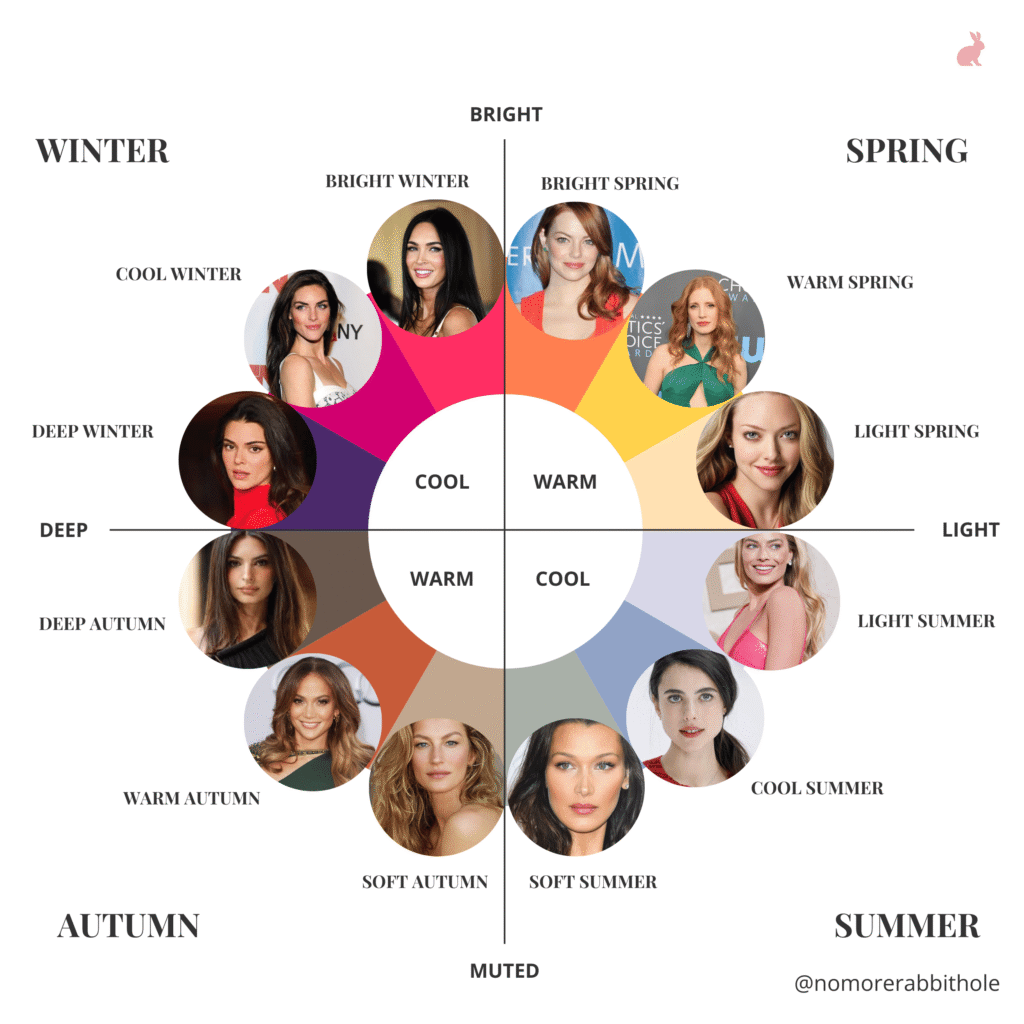
Dark Winter Color Type: Skin, Hair, and Eye Features
- Skin: Fair to deep with cool or neutral undertones — ivory, beige, olive, or deep cocoa.
- Hair: Black, dark brown, or very dark ash brown, usually without visible warmth.
- Eyes: Deep and intense — dark brown, black-brown, cool hazel, or deep green.
- Overall impression: Dark, cool, and high-contrast, with striking intensity.
Harmony
The Deep Winter color type glows in deep, cool, and rich shades. Muted, warm, or dusty colors make them look tired or faded.
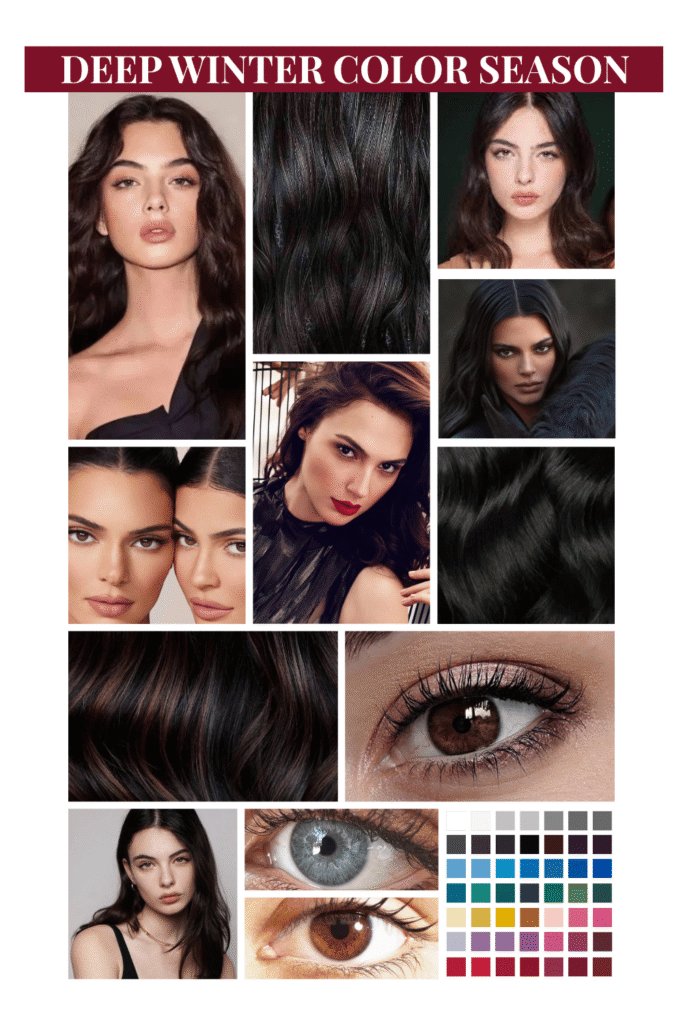
Deep Autumn vs. Deep Winter
Both types have depth and darkness, but Autumn is warm and rich, while Winter is cool and bold. Deep Autumn includes earthy olive greens and burnt oranges, while Deep Winter prefers jewel tones and strong contrast.
If black suits you well, you may be Deep Winter. If black looks too harsh but deep browns and mossy greens flatter you, you may be Deep Autumn.

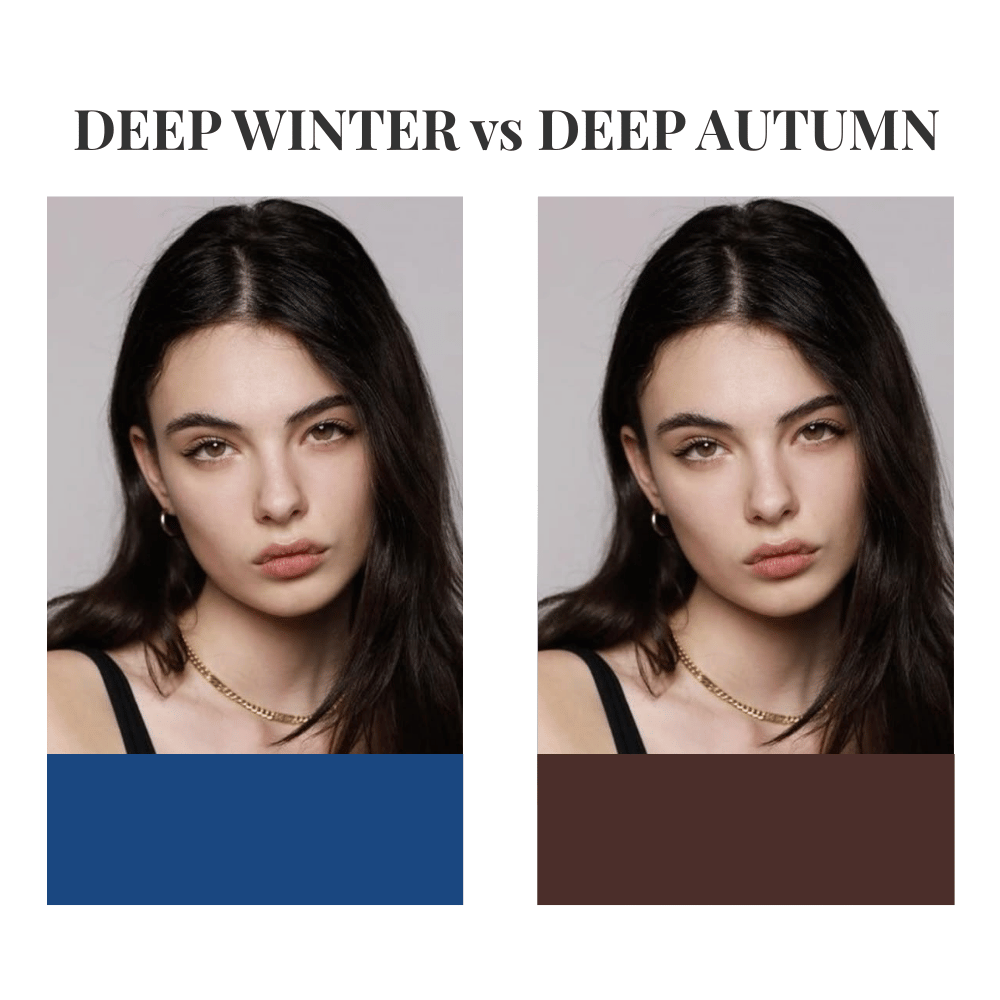
Deep Winter vs Cool Winter
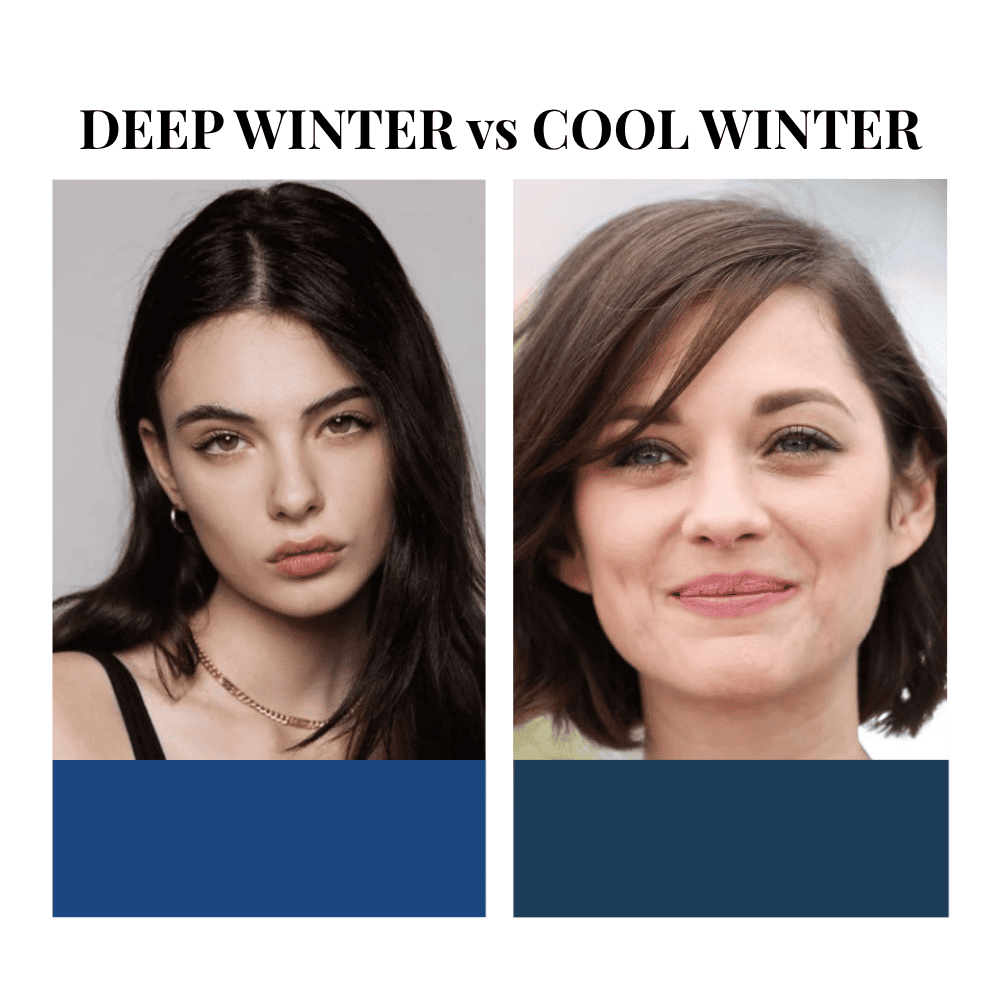
Deep Winter Color Palette
Neutrals
- Pure black
- True white
- Charcoal grey
- Cool navy
Colors
- Deep emerald green
- Royal purple
- Burgundy
- Cobalt blue
- Deep raspberry
- Icy pink
Note on black
Black is one of the best neutrals for Deep Winter. It matches the depth and contrast of this type perfectly.
Avoid
Avoid warm, muted, or earthy colors like mustard, olive, orange, and warm beige.
Deep Winter Celebrity Examples
- Kendall Jenner
- Deva Cassel
- Gal Gadot
- Monica Bellucci
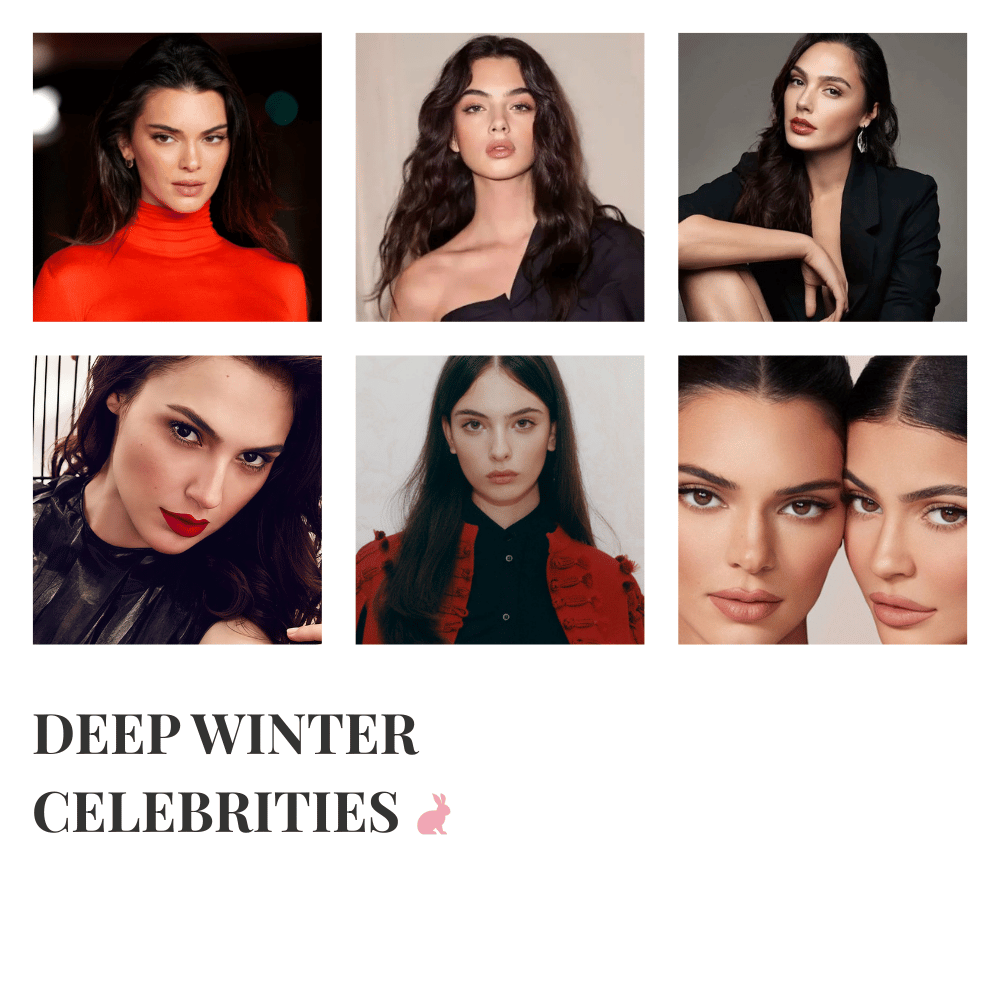
Clothing Tips
- Choose strong and high-quality materials like wool, silk, and polished cotton.
- Sharp tailoring, clean lines, and bold contrasts work best.
- Patterns should be bold but cool — sharp stripes, geometric prints, or dramatic florals.
Sophisticated, elegant, and bold styles highlight your deep beauty.
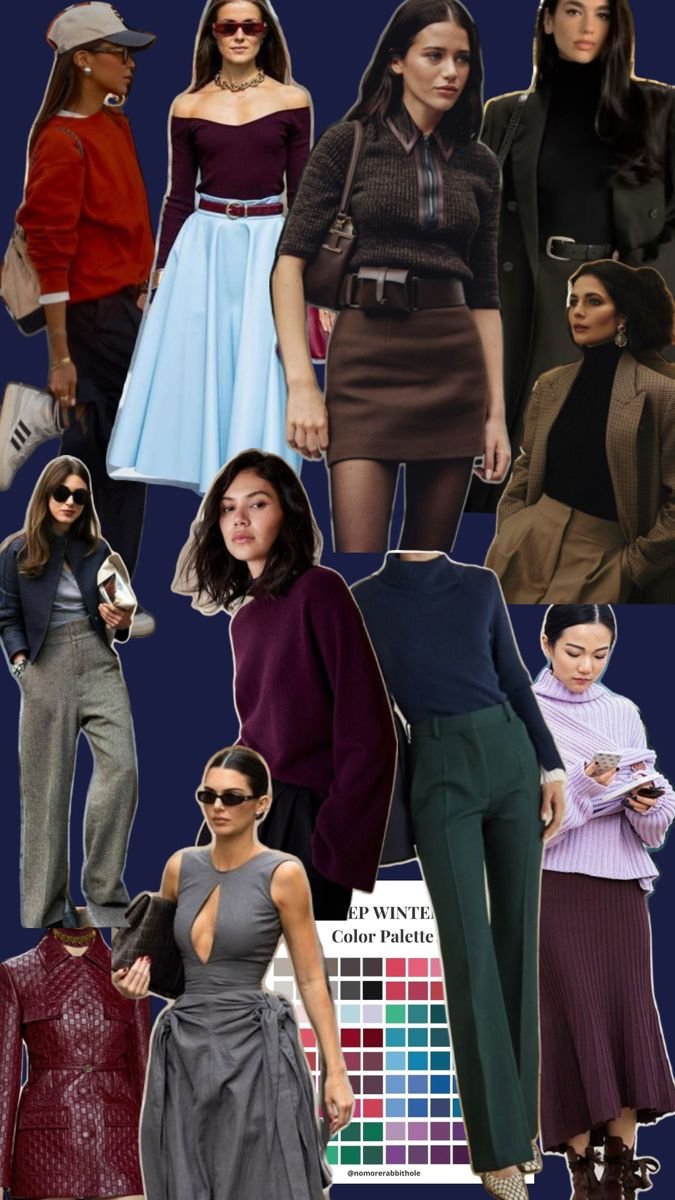
Make-up Recommendations for Deep Winter
- Foundation: Medium to full coverage with cool or neutral undertones.
- Eyeshadows: Deep navy, charcoal, plum, cool black.
- Mascara: Intense black mascara for strong, defined lashes.
- Lipsticks: Deep red, burgundy, plum, or fuchsia.
- Blush: Cool rose or deep berry shades.
High-pigment, cool-toned products emphasize your natural intensity beautifully.
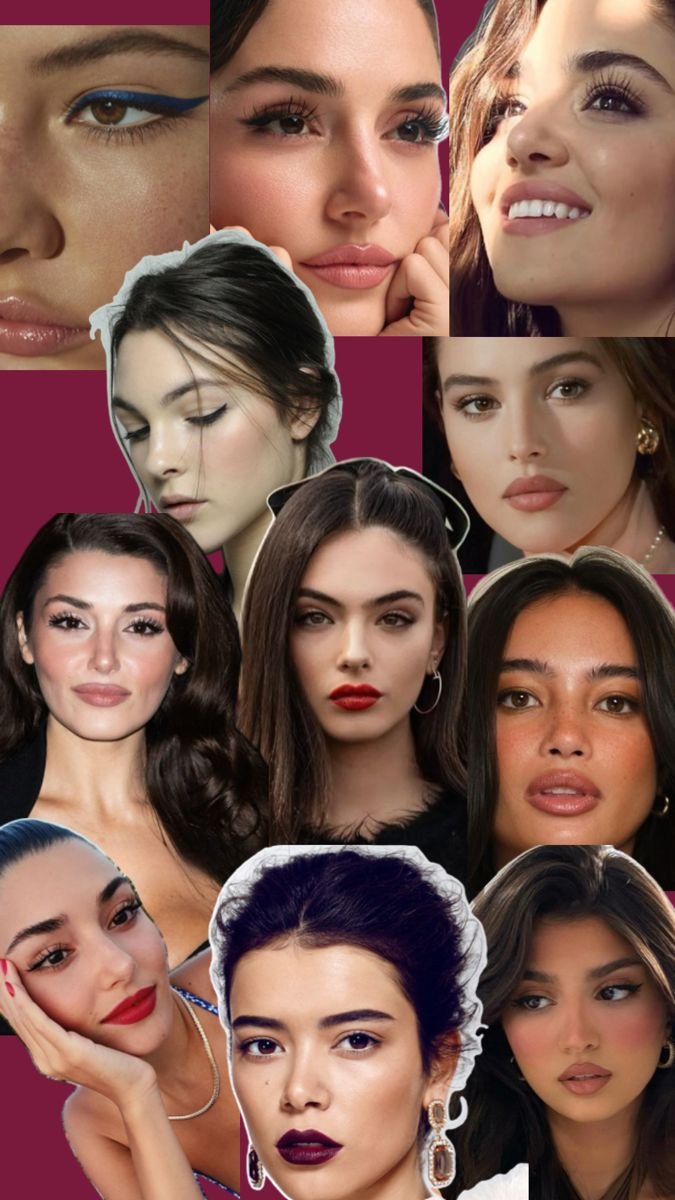
Glasses and Accessories for Deep Winter
- Glasses frames: Cool, dark frames like black, dark grey, deep navy, or metallic silver.
- Jewelry metals: Silver, platinum, white gold, pearls.
- Jewelry style: Sleek, bold, and polished — minimalistic or geometric designs work best.
Avoid warm-toned metals like gold or bronze.
Hair Color Tips
- Best shades: Deep black, dark ash brown, cool dark brown.
- Highlights: If any, very limited cool-toned highlights.
- Avoid: golden, copper, or warm highlights, which clash with your cool depth.
Deep, rich hair colors enhance your strong, dramatic beauty.
Have you wondered if your natural hair color is really the right one for you? Check out our article!
Final Thoughts
The Deep Winter Color Type is all about bold elegance, powerful contrasts, and vivid intensity.
Choose deep, cool colors and sophisticated styles.
Browse Other Color Type: Detailed Guides for Every Season
Quick Links:
Color Typology Myths – Part 1: What You Might Be Getting Wrong
Why Knowing Your Color Type Matters: 7 Benefits of Color Typology
Color Typology Myths – Part 2: What You Might Be Getting Wrong
